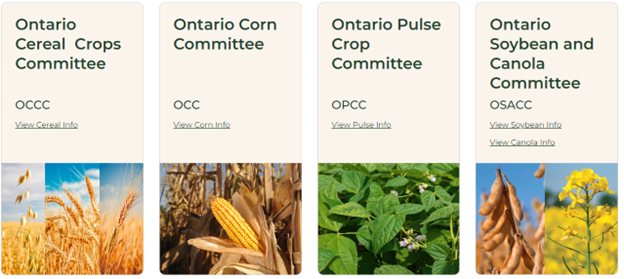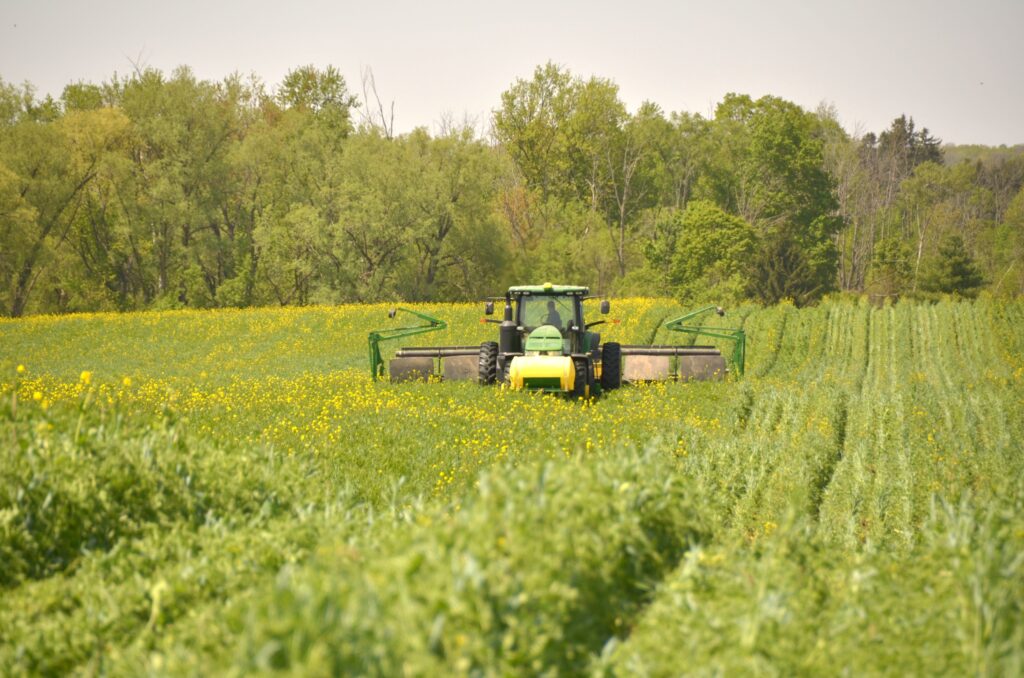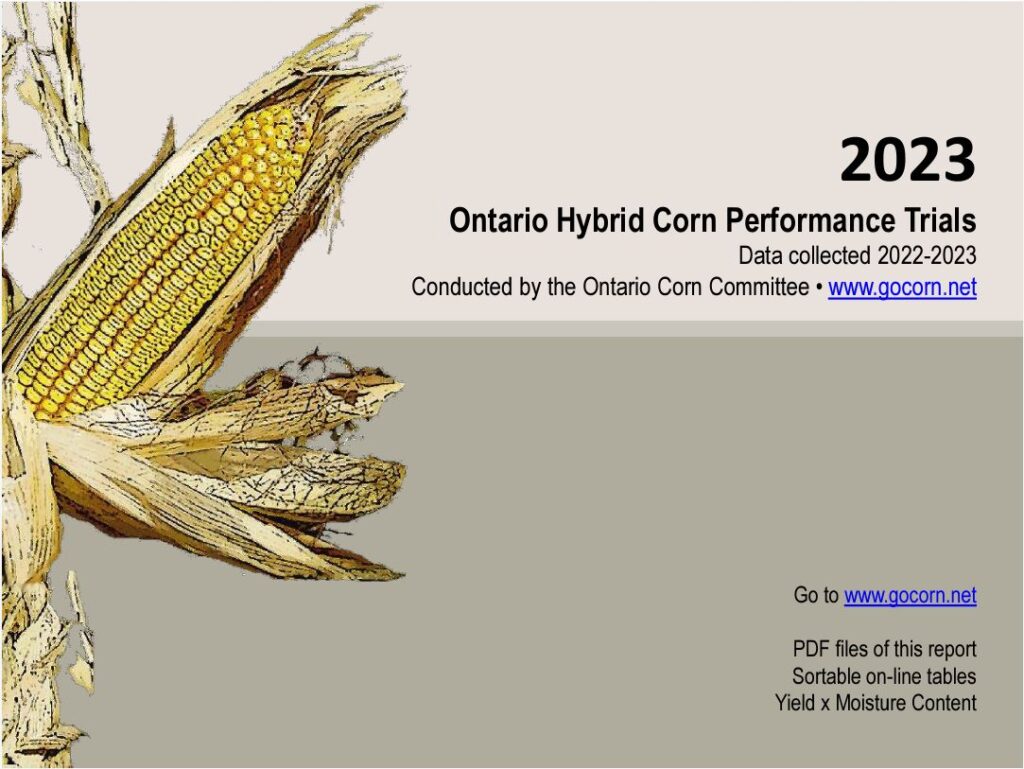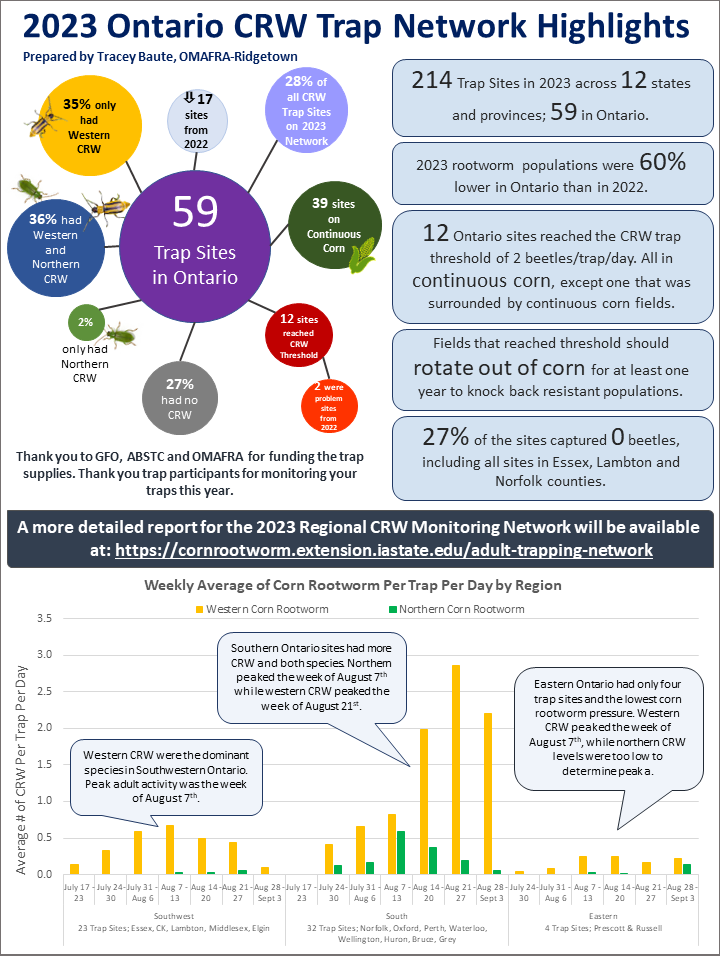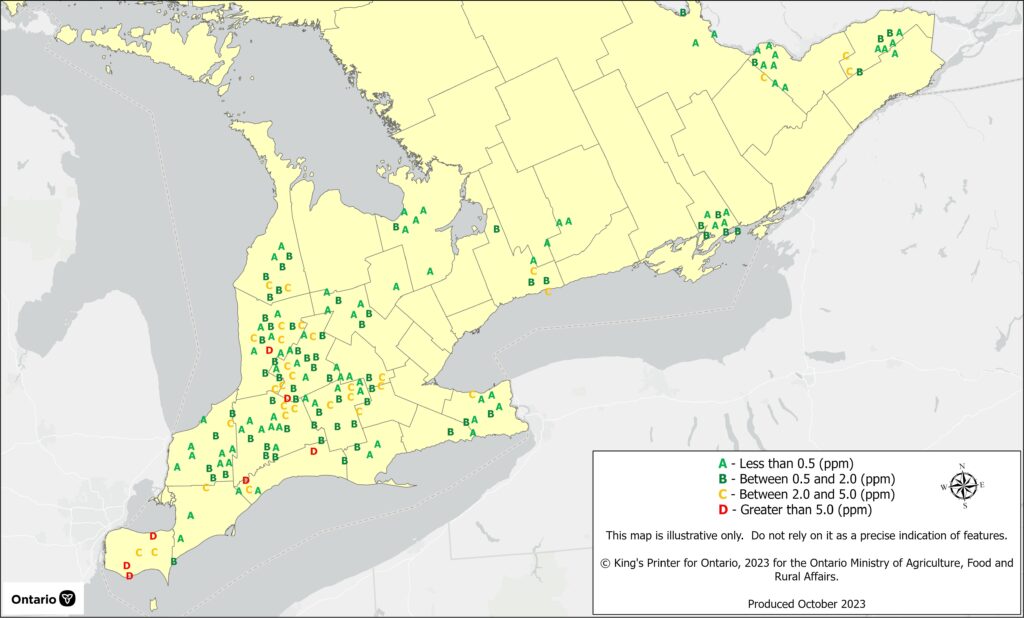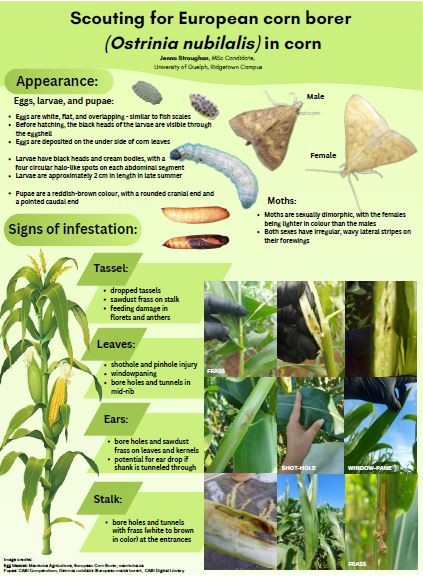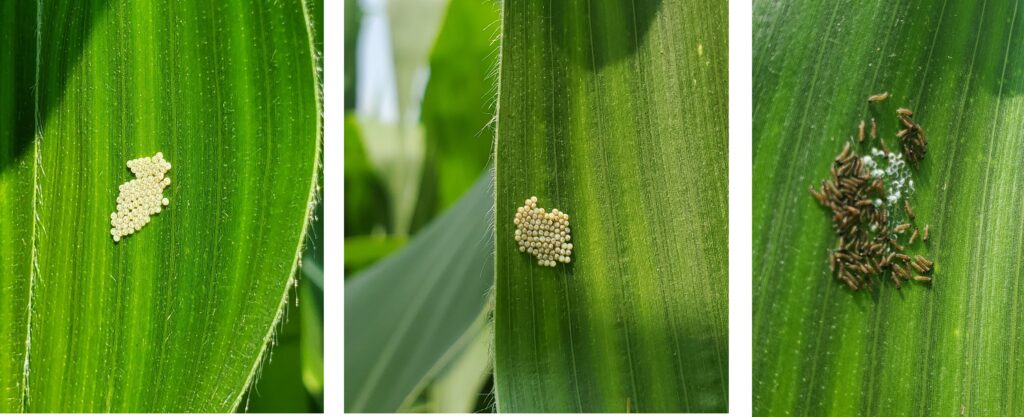Canadian Bt Trait Tables for 2024
The Canadian “Bt” Corn Trait Tables for 2024 are now available: English: Canadian Bt Corn Trait Table for April 2024 French: Maïs exprimant des protéines insecticides disponibles au Canada (Avril 2024) Bt is in quotes because RNAi (RNA interference) technology, which is not a Bt trait, is now offered in some of the packages for […]
